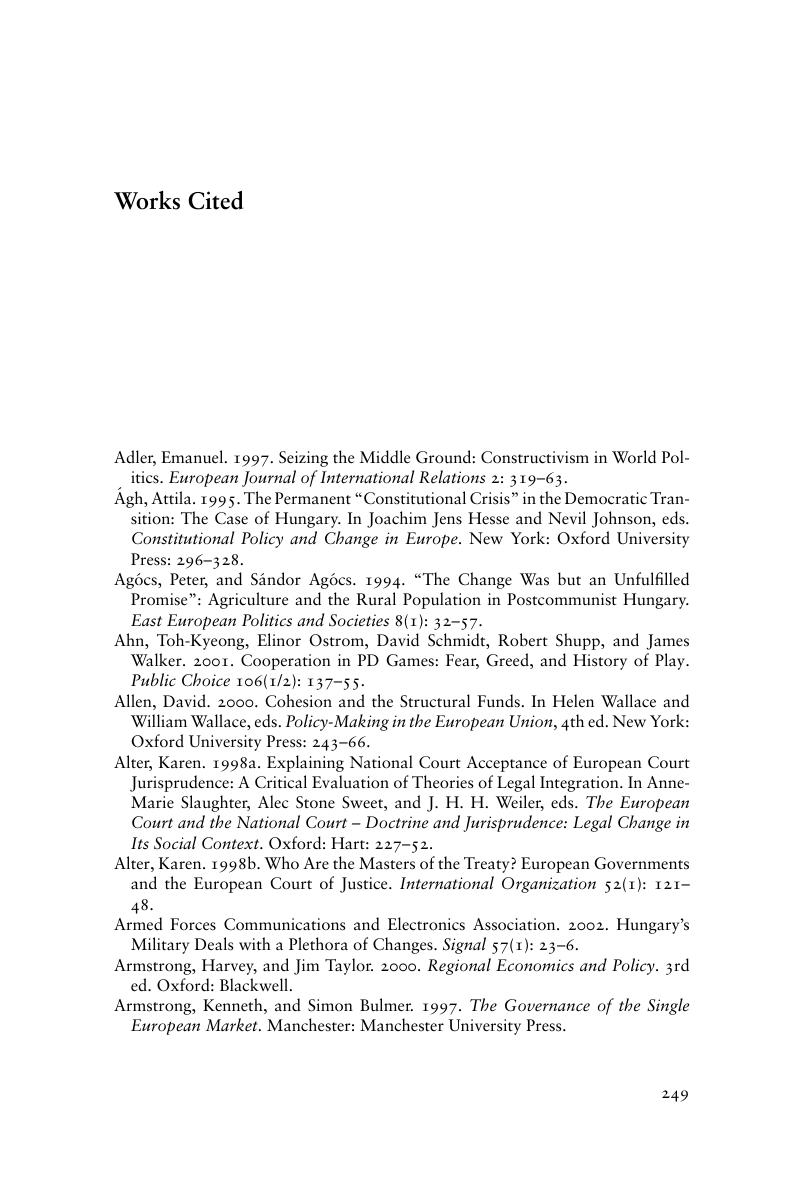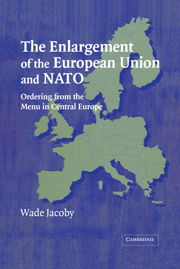Book contents
- Frontmatter
- Contents
- List of Tables, Graph, and Figures
- Preface and Acknowledgments
- Introduction: Ordering from the Menu in Central Europe
- 1 Emulation as Embedded Rationalism
- 2 Emulation as Rapid Modernization: Health Care and Consumer Protection
- 3 Emulation Under Pressure: Regional Policy and Agriculture
- 4 The Struggle for Civilian Control of the Military
- 5 Military Professionalization in War and Peace
- 6 Using Theory to Illuminate the Cases
- 7 Synthesis and Sequence: Juxtaposing Theory Traditions
- 8 Extensions and Conclusions
- Appendix: Selected List of Persons Interviewed
- Works Cited
- Index
- References
Works Cited
Published online by Cambridge University Press: 06 July 2010
- Frontmatter
- Contents
- List of Tables, Graph, and Figures
- Preface and Acknowledgments
- Introduction: Ordering from the Menu in Central Europe
- 1 Emulation as Embedded Rationalism
- 2 Emulation as Rapid Modernization: Health Care and Consumer Protection
- 3 Emulation Under Pressure: Regional Policy and Agriculture
- 4 The Struggle for Civilian Control of the Military
- 5 Military Professionalization in War and Peace
- 6 Using Theory to Illuminate the Cases
- 7 Synthesis and Sequence: Juxtaposing Theory Traditions
- 8 Extensions and Conclusions
- Appendix: Selected List of Persons Interviewed
- Works Cited
- Index
- References
Summary

- Type
- Chapter
- Information
- The Enlargement of the European Union and NATOOrdering from the Menu in Central Europe, pp. 249 - 282Publisher: Cambridge University PressPrint publication year: 2004



